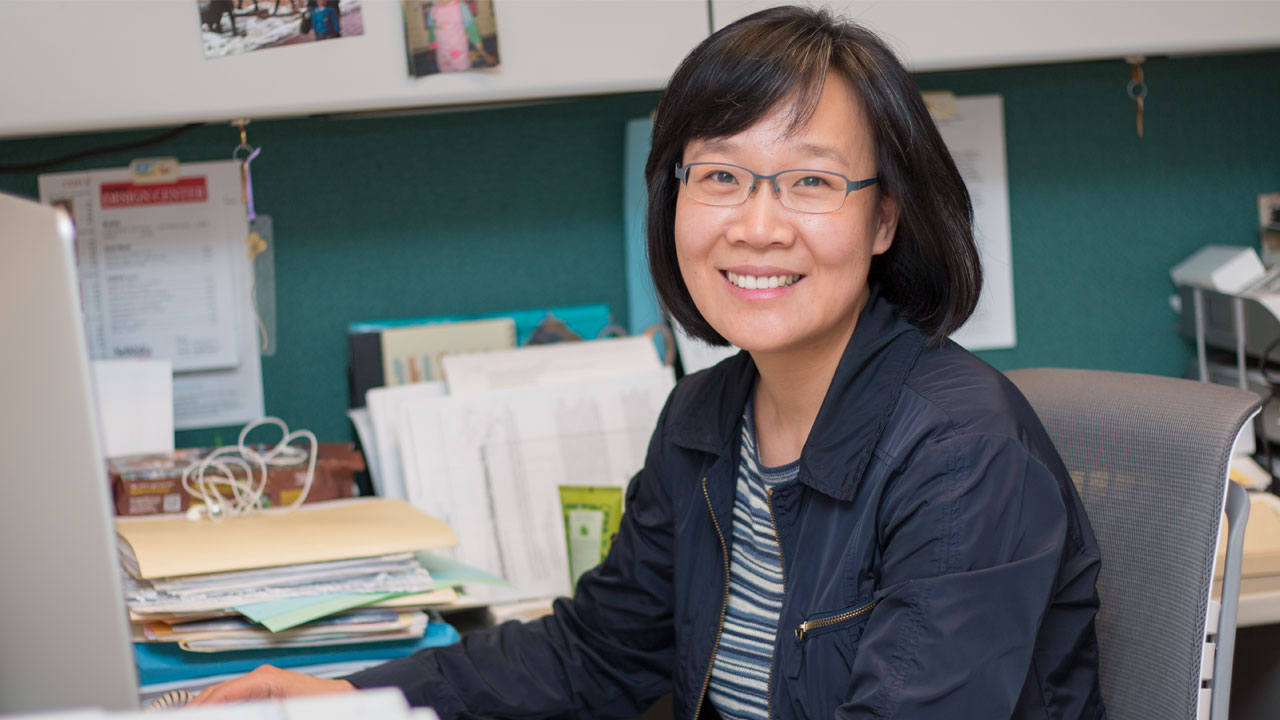
by Alyssa Amen | CYFS
A preschooler sends a toy car whizzing across a track and down a ramp. With a teacher’s guidance, this four-year-old can also learn about force and motion: the science behind her play.
Soo-Young Hong, associate professor of child, youth and family studies, is exploring how a professional development program could help preschool teachers integrate science into their daily classroom activities.
Hong is conducting the study alongside Brazilian researchers as part of the University of Nebraska–Lincoln/Brazil Early Childhood Initiative. Four of the study’s preschool classrooms are in Lincoln, and four are in São Paulo, Brazil.
Participating teachers watch video recordings of their classroom interactions, reflect on opportunities to implement science lessons and receive training in early childhood science instruction. Teachers are encouraged to discuss science content and help children ‘think like a scientist': asking questions, brainstorming, making and testing hypotheses, and drawing conclusions.
The goal is for teachers to lead the process of observation and reflection, Hong said. Her research team provides additional training materials, which suggest ways to connect children’s development with science teaching goals.
“Science requires a habit of thinking and problem-solving that is so important for little kids to develop,” Hong said. “It also affects children’s social skills and vocabulary development, which is important for later school success.”
According to Hong’s prior research, the most effective way to teach science concepts to young children involves a combination of children’s exploration and a teacher’s explicit guidance. However, in both the U.S. and Brazil, science concepts aren’t usually integrated in preschool classrooms—and when science activities are provided, children may be left alone to explore, Hong said.
“We want to empower teachers and give them the opportunity to talk about science,” Hong said. “Teachers don’t have to have all the answers. There are many resources available to dig into a science problem.”
Hong’s team aims to provide an additional resource for teachers: a simple form that will guide educators through the process of observation and reflection, also known as reflective practice. With the team’s international focus, Hong sees potential to use her team’s resource on a broader scale.
“As I talk with my Brazilian colleagues, it’s exciting that we see similar things in our preschool classrooms, even though we’re in different countries,” Hong said. “I have hopes that we may also see similar trends in other parts of the world and use our reflective practice resource to promote teachers’ competence in working with children in science.”
Hong's research is part of the University of Nebraska–Lincoln/Brazil Early Childhood Initiative. Launched May 2016 in São Paulo, the initiative aims to foster international collaboration around priority areas in early childhood.